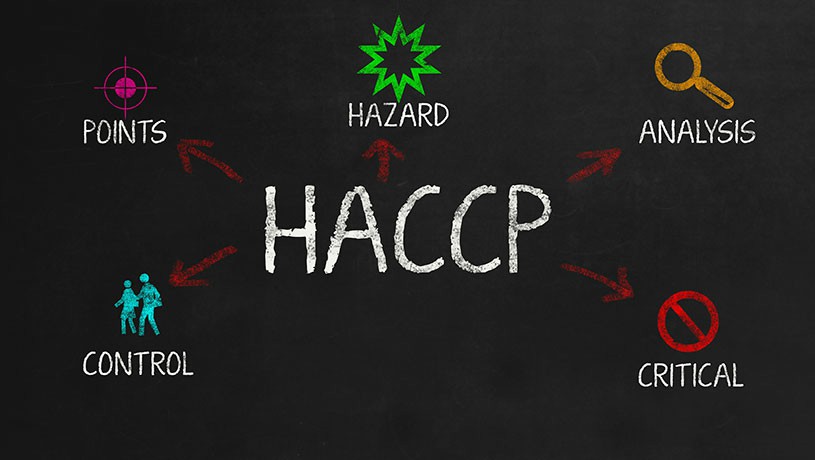HACCP Certification: The Key to Food Safety & Compliance for Irish Businesses in Dublin, Cork, Galway, and Beyond
In today’s fast-paced food industry, ensuring safety and compliance is of paramount importance for businesses across Ireland, especially in bustling cities like Dublin, Cork, Galway, and Limerick. The Hazard Analysis and Critical Control Points (HACCP) certification serves as a cornerstone for food safety management, helping businesses mitigate risks associated with food contamination while adhering to both Irish and EU regulations.
What is HACCP? Understanding Its Role in Food Hygiene & Risk Management
HACCP is a systematic approach designed to identify and control potential hazards in food production. The principles of HACCP focus on proactive measures to enhance food safety by:
- Identifying Hazards: Recognizing biological, chemical, and physical hazards in the food production process.
- Establishing Critical Control Points (CCPs): Determining points in the process where control can be applied to prevent, eliminate, or reduce hazards.
- Setting Critical Limits: Defining the maximum or minimum values to be met at each CCP.
- Monitoring Procedures: Implementing monitoring to ensure that each CCP stays within its critical limits.
- Corrective Actions: Creating a plan for actions to be taken when monitoring indicates that a CCP is not in control.
- Verification Procedures: Establishing methods to verify that the HACCP system is working effectively.
- Record-Keeping and Documentation: Maintaining accurate records of all procedures and actions.
HACCP Training Benefits: How It Ensures Food Safety Standards in Ireland
HACCP training courses are pivotal for food businesses aiming for certification. Here are some benefits:
- Enhanced Food Safety: Training equips employees with knowledge on how to prevent contamination and manage risks effectively.
- Compliance with Legislation: HACCP training helps businesses meet food safety legislation and standards stipulated by the Irish government and the EU.
- Improved Customer Trust: HACCP certification boosts consumer confidence and loyalty, which is essential for the competitive food industry.
- Better Operational Efficiency: By identifying potential hazards and critical control points, businesses can streamline processes.
- Risk Management: A structured approach to identifying and mitigating risks minimizes the likelihood of food safety incidents.
Step-by-Step Guide to Getting HACCP Certification for Your Business
Obtaining HACCP certification involves several steps:
- Conduct a Hazard Analysis: Identify potential hazards that may threaten the safety of your food products.
- Determine Critical Control Points: Identify where controls can be applied to mitigate hazards.
- Establish Limitations: Set up critical limits for each CCP.
- Develop Monitoring Procedures: Create a system to monitor CCPs regularly.
- Implement Corrective Actions: Have protocols in place for when CCPs are breached.
- Verify the System: Conduct regular audits and reviews to ensure compliance.
- Document Everything: Keep detailed records of processes, training, and incidents to ensure transparency.
Comparing Online vs. In-Person HACCP Training Courses
When it comes to HACCP training, businesses can choose between online and in-person courses:
- Online HACCP Training: Flexible, cost-effective, and accessible from anywhere in Ireland. Ideal for busy professionals.
- In-Person HACCP Training: Provides hands-on experience and immediate interaction with instructors. Best for those who prefer a structured learning environment.
Common HACCP Violations and How to Prevent Them
Understanding common HACCP violations is crucial for prevention. Key issues include:
- Failure to identify all hazards in the process
- Inadequate documentation and record-keeping
- Poor training of staff on HACCP principles
- Neglecting established monitoring procedures
Regular audits and refresher training can significantly reduce these violations.
How HACCP Compliance Strengthens Business Reputation and Customer Trust
Achieving HACCP certification not only demonstrates a commitment to food safety but also enhances your business's reputation. Customers are more likely to choose establishments that prioritize safety and hygiene, leading to increased sales and customer loyalty.
How to Conduct a HACCP Audit for Your Business
A HACCP audit involves reviewing all processes and controls to ensure compliance. Key steps include:
- Review documentation and records
- Inspect physical facilities and equipment
- Evaluate employee training and adherence to protocols
- Conduct interviews with staff to assess understanding of HACCP
Conclusion & Call to Action
In the dynamic landscape of food safety in Ireland, HACCP certification is an essential step for businesses in Dublin, Cork, Galway, Limerick, Waterford, and Belfast. It not only ensures compliance with food safety standards but also safeguards public health. Ready to secure HACCP certification for your business? Enroll in a HACCP training course today and protect your business and customers from food safety risks. For more inquiries, contact us at [email protected].



 349,500 Offered Certificates
349,500 Offered Certificates
 24/7 Online Training
24/7 Online Training
 Money Back Guarantee
Money Back Guarantee
 Fully Accredited Courses
Fully Accredited Courses
